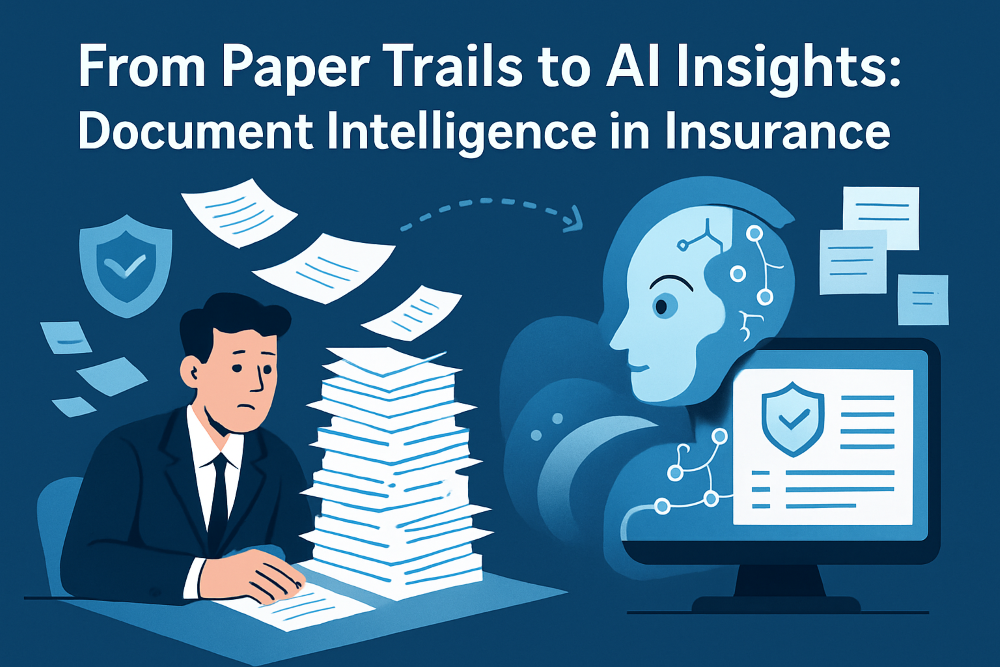Digital transformation hasn’t left any industry untouched. The insurance industry is no exception to this. Much like any major industry, insurance is also facing a wide range of new developments and every firm’s future rests on its ability to adapt and evolve. The main changes could be around customer-centricity, but operational efficiency and data analytics also look very promising.
Many insurance companies are still slow to adapt to digitization and automation. Unless they accelerate the rate of transformation, they will not be able to meet the modern, digital-savvy customers’ needs.
Here are three tips that can help insurance brokers accelerate their digital transformation.
An Increased focus on the customer
Customers are becoming increasingly sophisticated in the digital realm and will not engage with any company or business which doesn’t keep pace with their requirements. The insurance industry has already been found to be many steps behind. A report from global consulting firm Capgemini found that the insurance industry is behind the telecom, automotive and banking industries in both digital and leadership expertise, and, at 56% had the highest number of beginners in digital mastery.
Another survey by Willis Towers Watson, global advisors to the insurance industry found that 58% of senior executives in the insurance industry have acknowledged that they are behind other financial services sectors, when it comes to digital technology.
If you’re like other insurance firms, finding it hard to retain customers due to a great deal of manual processes involved in insurance, these are a few key questions you need to ask:
- Do you know what your customers want?
- Are you delivering a consistent, delightful customer experience to all of them?
- Are you harvesting your customer data and using it to deliver unique, personalized solutions?
Unlock hidden treasures in your data
Data really is king in the insurance industry. Insurers are investing in analytics to improve key aspects of the business. For instance, they are using it to price their products more efficiently and match the products according to specific geographies. However, it isn’t happening fast enough and clearly not as much in the broker space. In a survey of insurance businesses conducted by West Monroe Partners, a full-service North American business and technology consultancy, found that only 11% of respondents strongly agreed that their organizations were fully reaping the benefits of advanced analytics, while 46% somewhat agreed.
Here are a few key questions you should ask about your analytics system:
- Can your analytics system process all kinds of structured and unstructured data?
- What kinds of data would give you a competitive advantage?
- Do you have the right organizational structure and analytics partner to take full advantage of your data?
Digitizing processes for higher efficiency
Some companies have been born in the digital age, totally unshackled by legacy systems. Others have had to go through several major shifts in technologies used in the process and how work gets done. Most businesses out there have done at least the bare minimum to keep up with change. They have stopped manually keying and rekeying important data into spreadsheets. They have also adopted cloud software platforms that allow them to collaborate on documents in real time.
Here are a few key questions you should ask:
- Are you easily able to share information with underwriters, carriers and customers while remaining policy compliant?
- Which back office systems can be used to improve customer interactions?
Wrapping Up
Change is hard, without a doubt. But the rewards of digitizing your insurance process can be huge. You can significantly lower your operational costs, improve speed and accuracy of policy checks through automation, improve turnaround time and ensure customer loyalty. Exdion helps insurance agencies transform their operations and customer experience through digital technology, and reimagine their legacy business models to stay relevant and competitive. Talk to us and accelerate your digital transformation.


